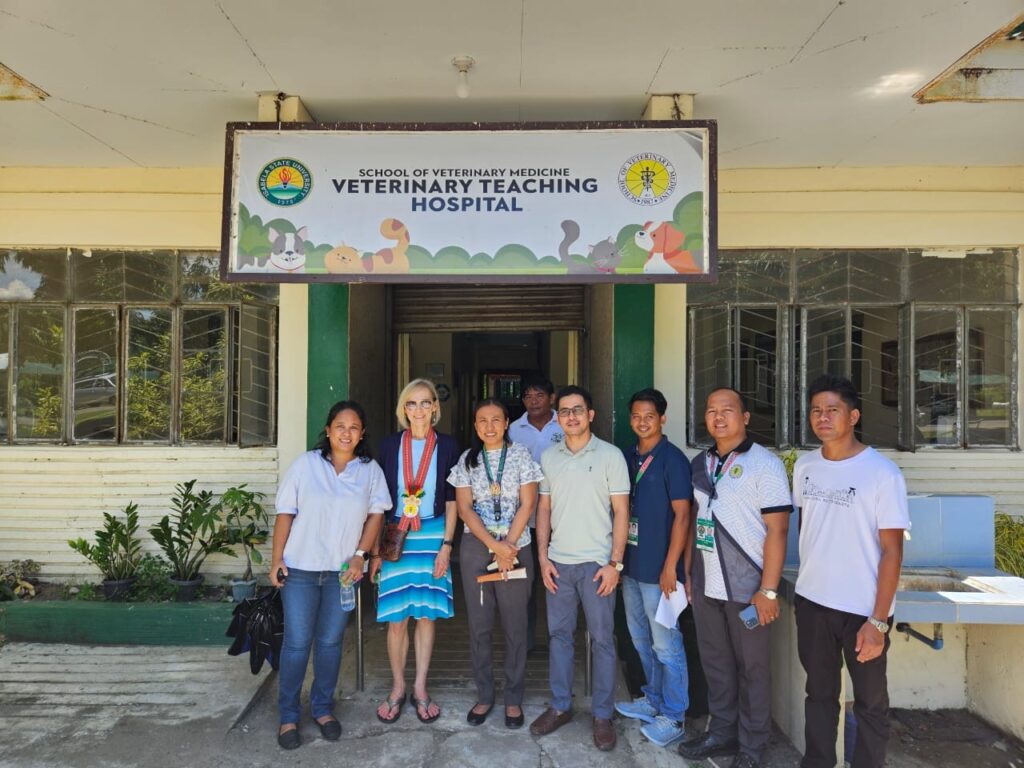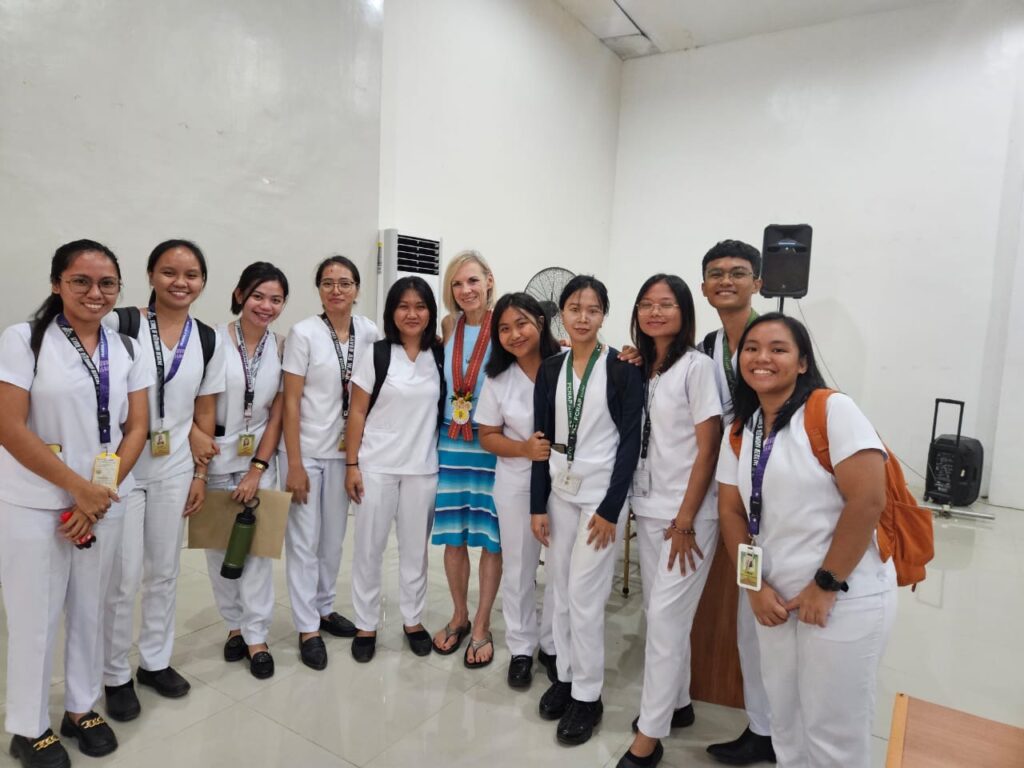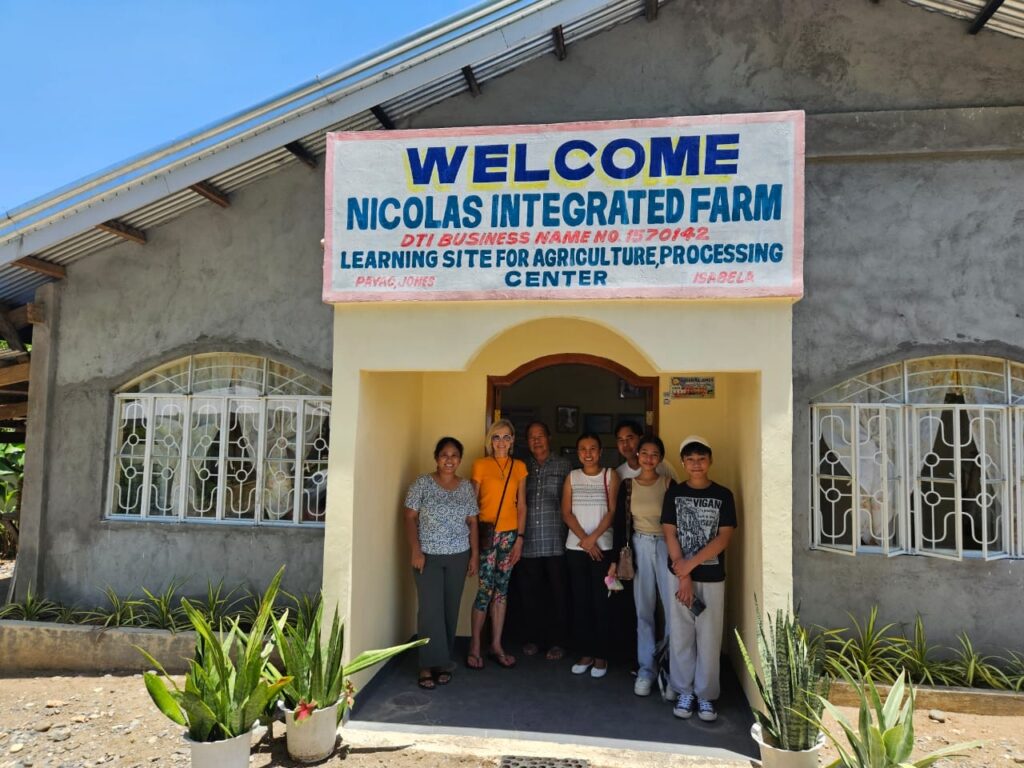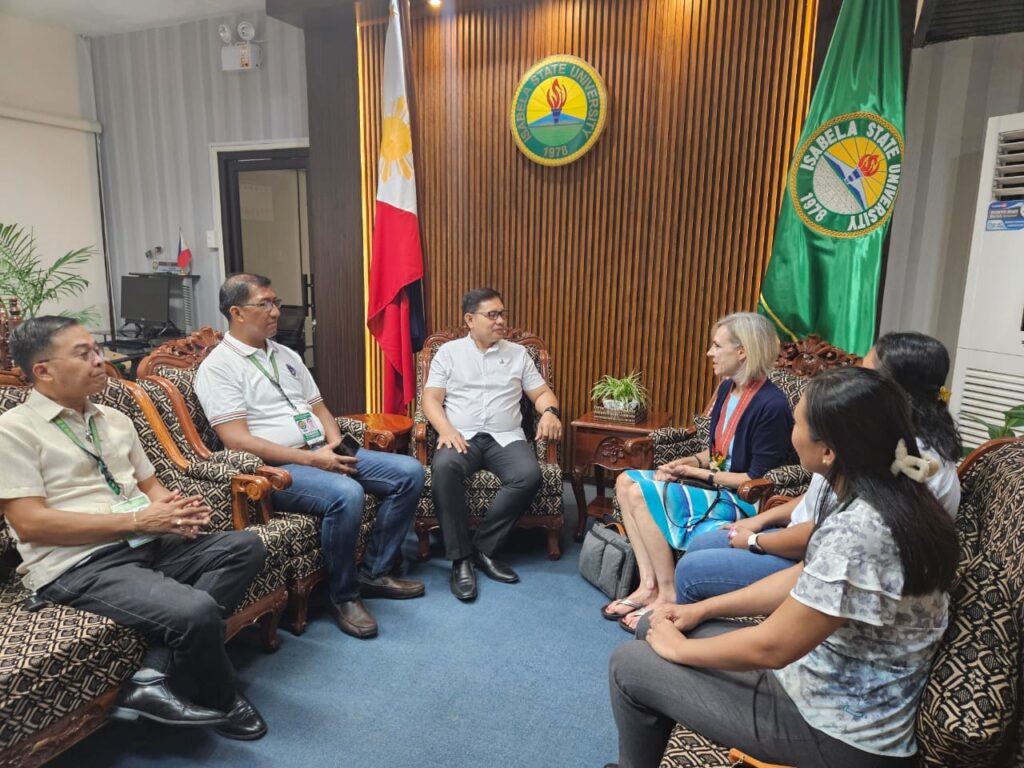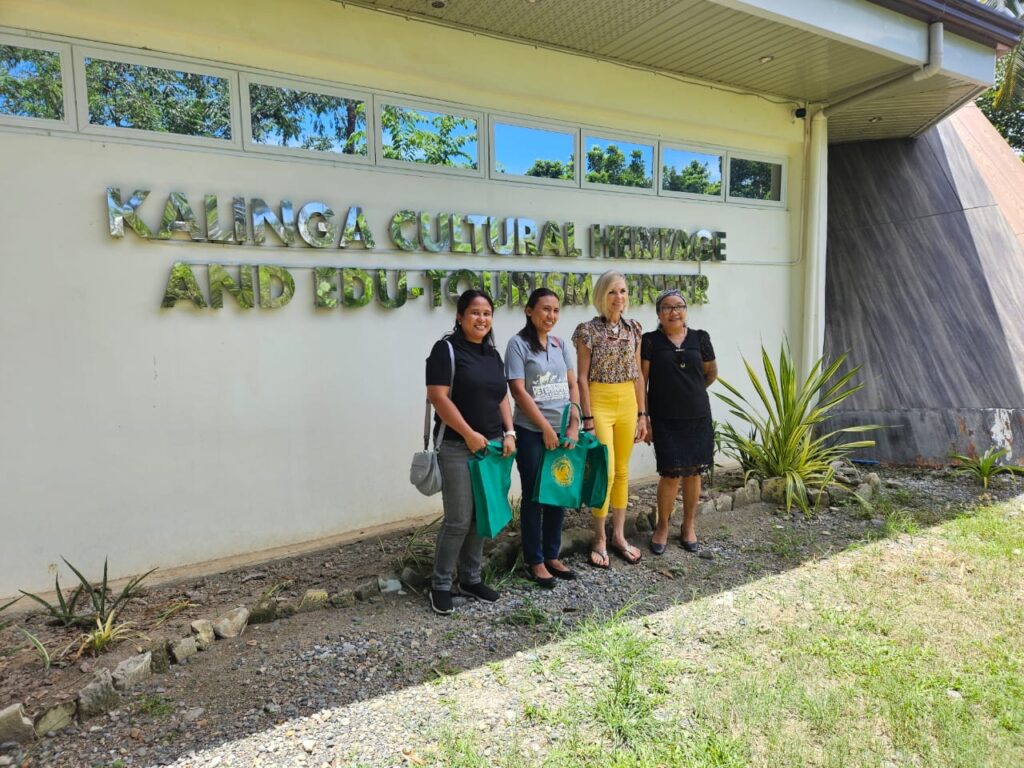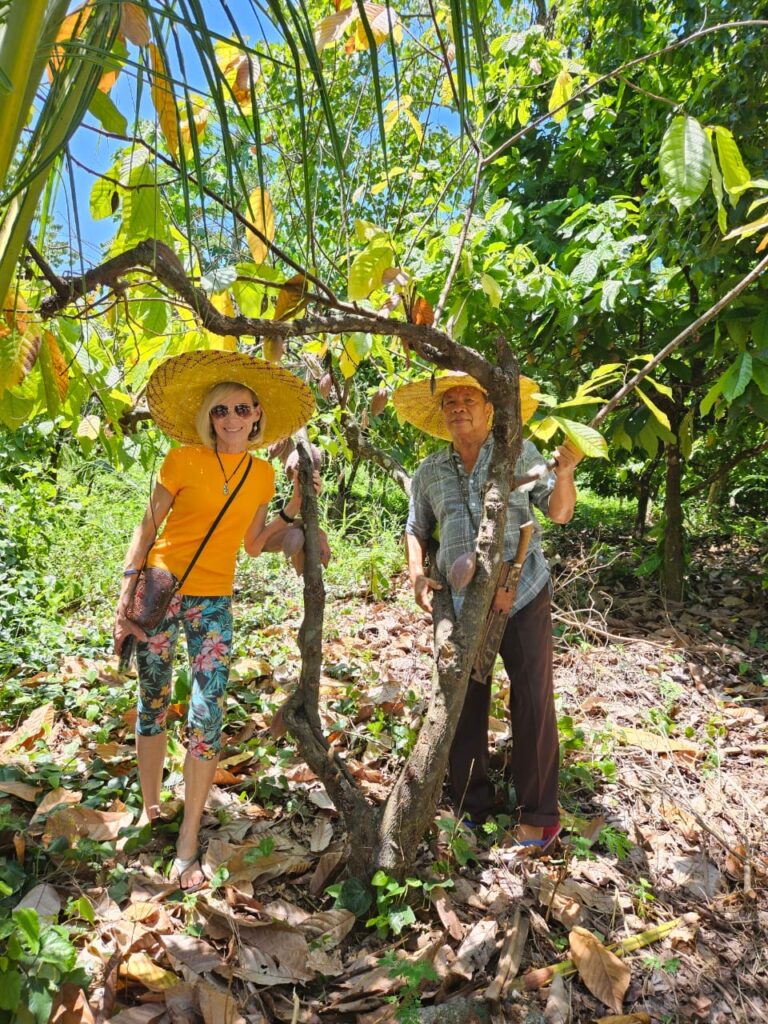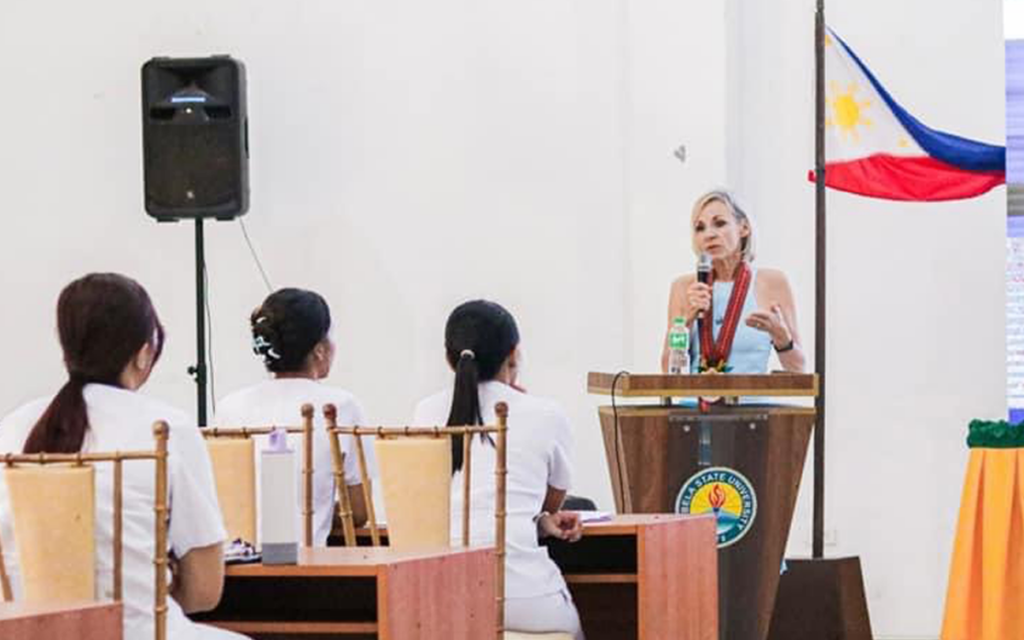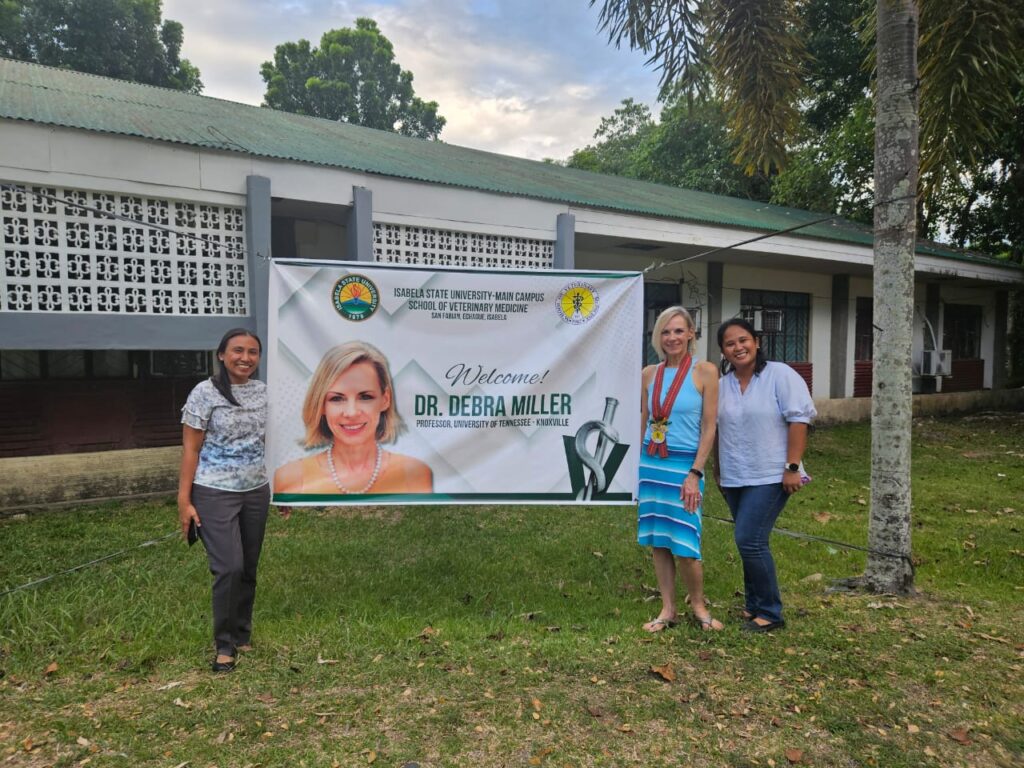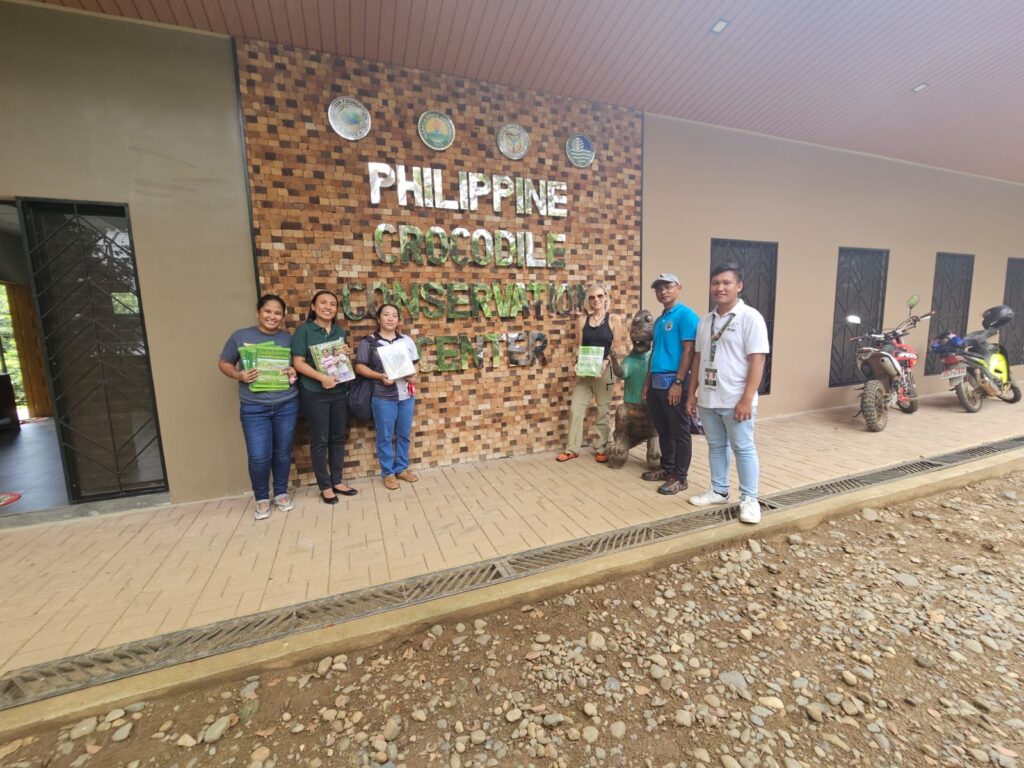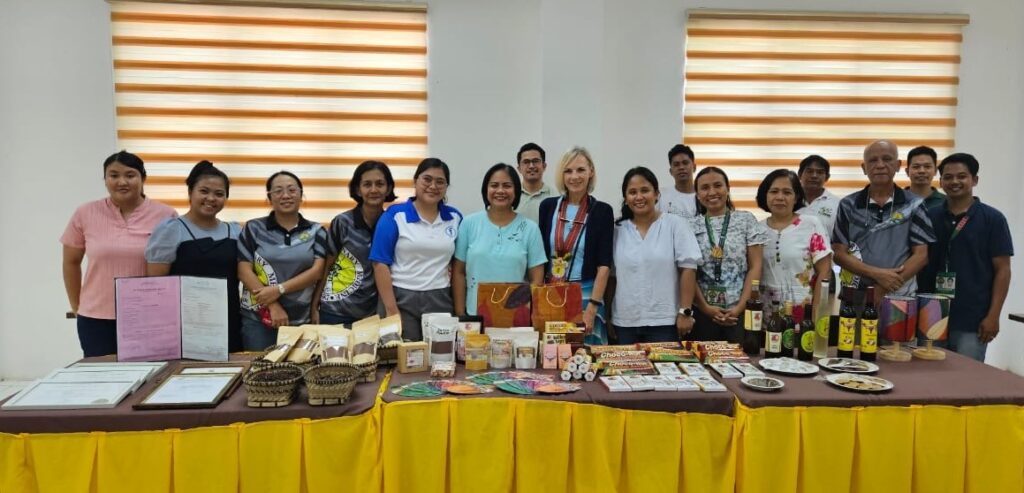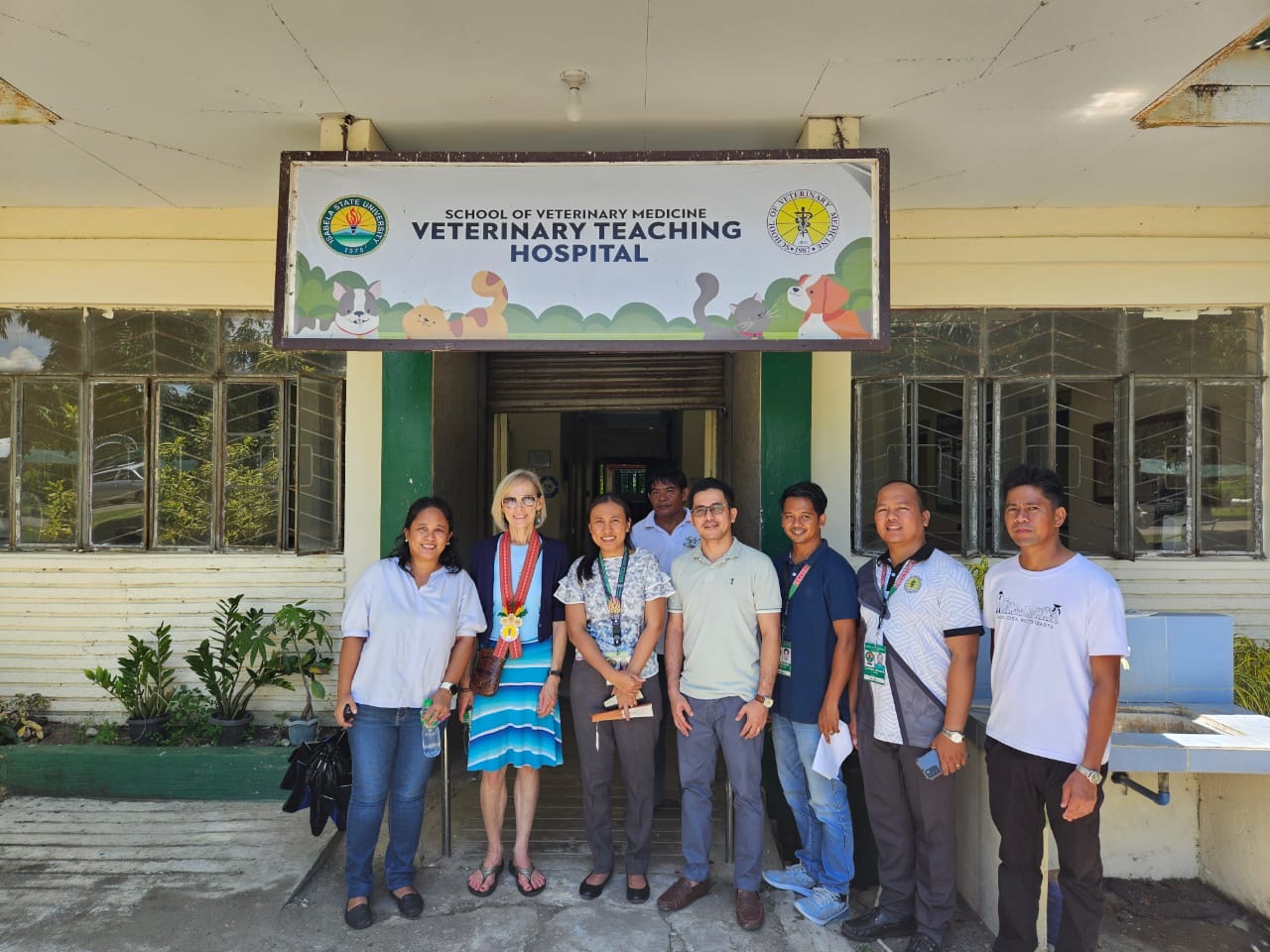
Greetings! I hope that as you celebrated Labor Day, you were able to find some time to rest from your labors. I also hope that you are recharged for an exciting academic year and engagement in One Health.
Wow, have we been busy! In just the past couple of months, OHI has been represented around the globe–in Colorado and Washington D.C., as well as Borneo and the Philippines. These stories and others are highlighted in our quarterly newsletter and include updates on wildlife trade and info on the new Center for Analysis and Prediction of Pandemic Expansion. Also highlighted is the One Health Student Coalition. They are going full steam ahead planning the second biennial One Health Student Leadership Summit and organizing various activities for this semester. They are an impressive group! Be on the watch for more information about the summit as well as news about Spooky Science, our One Health Day celebration, which will be held on Halloween.
In August, Deb traveled to the Province of Isabela in the Philippines for a USDA reciprocal visit to Isabela State University. There she visited Dr. Karina Nicolas and the faculty of the Isabela School of Veterinary Medicine. Dr. Jennifer Bermudez, dean of the veterinary school, also accompanied her throughout the visit.
The trip included multiple visits to fruit farms to see how they grow their crops using integrated farming techniques. In fact, her first full day was spent at the Nicolas farm, owned and operated by Dr. Nicolas’ family. While on the farm, Deb was treated to generous quantities of freshly picked fruit and hot cocoa.
Another highlight of the trip was the visit to Mabuwaya Foundation and the tour of the Philippine Crocodile Conservation Center. The Philippine Crocodile is highly endangered with less than 150 (and perhaps even less than 100) animals left in the wild. At the center, Deb met with biologist Bernard A. Tarun who explained how they developed their headstart program. The adult (breeding) crocodiles at there are those who, for various reasons, cannot be released back to the wild. It took many years, but the breeding pair have begun to produce offspring for the program. The hatchlings will be used to restock areas where populations have disappeared. Headstarting the hatchlings in captivity will hopefully increase their chances of survival. We also learned of the challenges experienced in educating the local people about crocodiles (and other species whose populations are declining). Huge efforts are put into education because biologists realize that they need the support of communities if their conservation efforts are to be successful.
One day was spent at Kalinga State University visiting the Kalinga Cultural Heritage and Eco-Tourism Center. There Deb met with Dr. Jessie Grace M. Sannadan, center director, and learned about tribal relations and traditions of the indigenous peoples of the Philippines. Through the stories, it was evident that “living with the land” (One Health approach) is the premise of their society. Animals, plants, air, water, soil were all woven into every story as well as traditional dance, music, dress, and beliefs.
At Isabela State University (ISU), Deb met with Dr. Ricmar Aquino, ISU president, who is very keen to find ways for UT to collaborate on research and education. He had just returned from a meeting in Hawaii where there was discussion about forming a coalition of universities focused on conservation. They discussed the importance of using a One Health approach in these efforts. President Aquino also arranged for Deb to visit the Cagayan Valley Cacao Processing Center, where she was treated to lunch and a taste of some of their products, including chocolate wine.
At ISU, Deb delivered a seminar on the importance of using a One Health approach to tackle complex issues. The seminar was held in the Climate Change Center and attended by both faculty and students. As it was the first day of classes, upper-level veterinary students predominated but it was also open to medical, nursing, and other students, as well as faculty. The seminar was recorded so that those who were not able to attend (or were at other universities throughout the Philippines) could view it as well. Although initially slated for 2 hours, in the end it was 3 hours of lecture (2.5 hr) and discussion (30 min). Deb was thoroughly impressed that attendees remained alert and had many questions! She focused primarily on the United Nations Sustainable Development Goals but also gave examples of research projects at UT and how a One Health approach is applied. After the lecture, Deb was able to interact with many of the students. She was inspired to hear the diversity of interests, especially in native species and conservation efforts.
There were many plans that were discussed for moving forward. One plan that was discussed is rejuvenating the clinical rotation at the Crocodile Conservation Center for veterinary students. This opportunity was in place prior to COVID but was halted during COVID and has not yet been reinstituted. Another plan is for the center to begin using the veterinary school for diagnostic help with their animals and to implement a herd health program, including routine health checks, collection of baseline blood and fecal parameters, and conducting full necropsies on animals that die. Because students want to gain knowledge on wildlife diseases, another plan is to schedule a follow-up (and perhaps recurring) zoom conference to discuss interesting (or even just straight-forward) cases.
Many opportunities for future engagement and collaboration with this amazing country!
